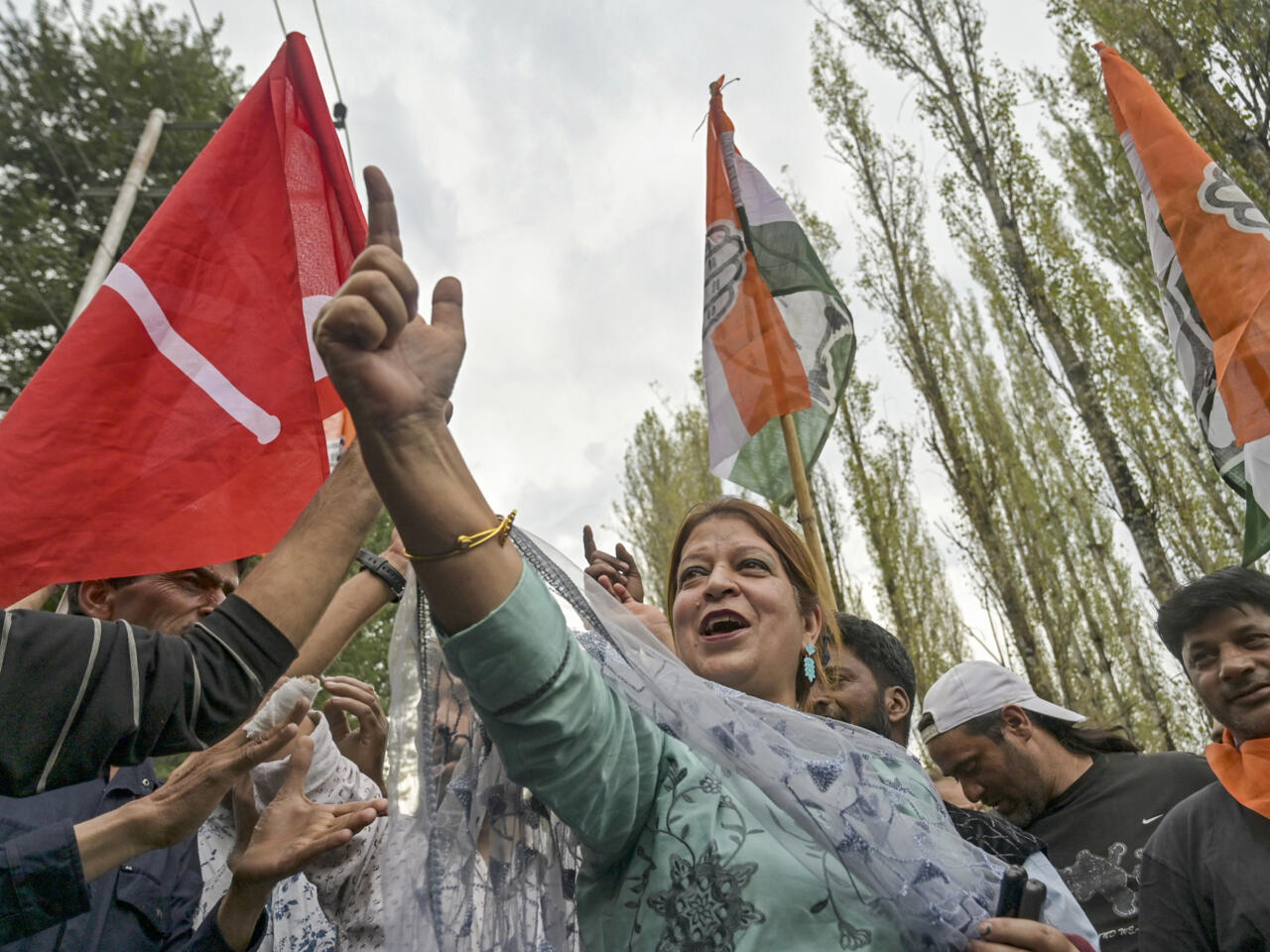Indian-occupied Kashmir (IoK) voted into its first government on Tuesday since the territory was placed directly under the control of New Delhi. Voters chose opposition parties to head the regional assembly.
In August 2019, the ruling Bharatiya Janata Party (BJP) abolished the special status of IoK by scrapping Article 370, which restricted the powers of the Indian parliament in the state for everything except defence, foreign affairs and communications.
Since then, the Muslim-majority territory of some 12 million people has not had an elected local government but has been governed by a governor appointed by New Delhi. While voters in June did take part in national elections when Modi won a third term, those were the first local elections since 2014.
Earlier, the opposition parties, National Conference and Congress were to form the government, causing, naturally, widespread jubilation in the streets. Until mid-afternoon, figures from the Election Commission had NC and Congress winning 47 out of 90 assembly seats-far ahead of BJP, which bagged 27.
Some saw the vote as a de facto referendum against the federal government’s decision to revoke the special status of the territory. Social activist Iqbal Ahmad Bhat noted, “The people have given their judgment against what New Delhi did.”
Half a million Indian troops are engaged in a 35-year-old insurgency that has killed tens of thousands of civilians, soldiers and rebels, dozens of whom are reported dead this year alone. “We are delighted with the poll results, and we hope that political rights will be restored,” said Jahangir Ahmad, among the jubilant crowds outside the expected new chief minister’s residence, NC leader Omar Abdullah.
His father, Farooq Abdullah, NC president, termed the results a “verdict” against Modi’s government. Critics, however, argue that the assembly would have minimal powers, mainly over education and culture.
New Delhi still retains the right to override any laws and still names the governor. Modi’s BJP asserts that regime changes brought in a peaceful era of fast economic growth – a story other parties reject. The BJP performed well in the southern Hindu-majority Jammu region, but it contested an insignificant number of seats in the Kashmir valley.
Besides in the IoK, vote counts were also declared for the northern state of Haryana, just north of New Delhi. In Haryana, the BJP appeared to be ahead of the ruling Congress party. Among the newly-elected legislators was retired star wrestler Vinesh Phogat, who contested for the Congress party.
The 30-year-old World bronze medallist switched to politics after being disqualified from the women’s 50-kilogram competition at the Paris Olympics for being overweight. She was in protests last year against the then-national Wrestling Federation chief for alleged sexual harassment.
The BJP initially lagged but gained the lead in Haryana elections, TV channels reported. Haryana and IoK elections were conducted in phases that ended on Saturday. It was the first popularity test for Modi since he returned as prime minister for a consecutive third term. Exit polls had predicted a Congress victory in Haryana and both Congress and NC in IoK.
The counting showed BJP is leading in 51 seats in Haryana, a state that it has been governing for a decade, while Congress is ahead in 33 seats, CNN-News18 said. In IoK, the alliance of Congress and NC leads in 49 seats, while BJP is at the top in 27.
A victory for the Congress in IoK would make it another massive triumph in the pocket of Rahul Gandhi, whose leadership the opposition has widely criticised for the party’s decline since Modi took power in 2014. Gandhi has been the leader of the opposition alliance that refused Modi an absolute majority in the parliamentary elections and currently leads the opposition in the lower house of parliament.















